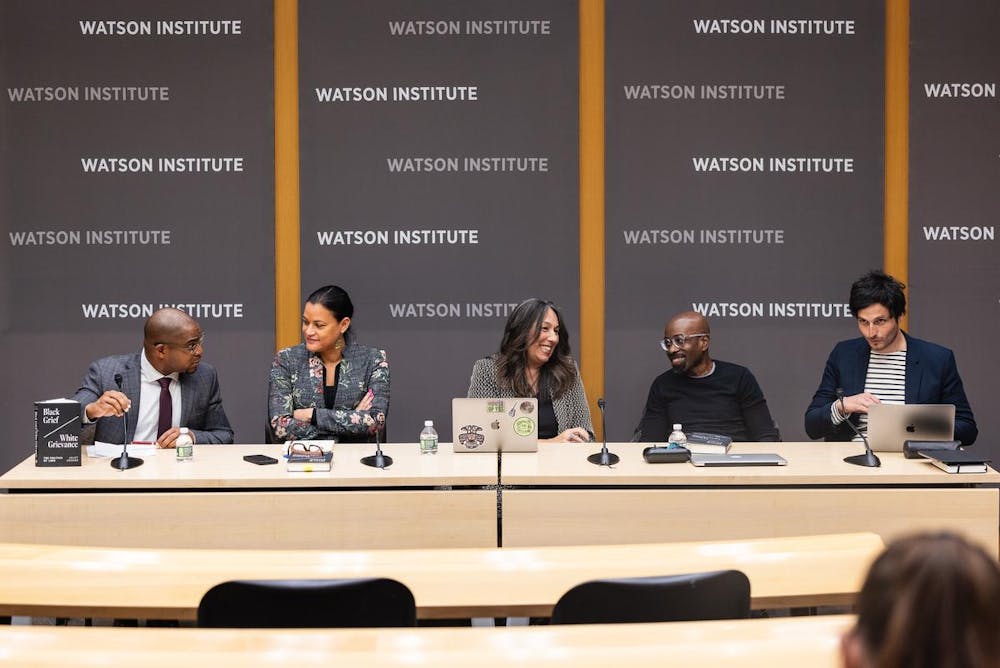Professor of Political Science Juliet Hooker discussed her new book, “Black Grief/White Grievance: The Politics of Loss,” with a panel of scholars Monday evening. The panel was a part of Democracy Project, an initiative of the University’s Center for Philosophy, Politics and Economics. The project aims to promote the study of “democratic values, norms, cultures, institutions and practices around the world,” according to its website.
In addition to Hooker, the panel included Kevin Quashie, professor of English; Cristina Beltran, associate professor of political science at New York University; and Thomas Zimmer, professor of history at Georgetown University. The panel was moderated by Melvin Rogers, professor of political science and associate director of the PPE.
Hooker’s book discusses how “Black grief is exemplified by current protests against police violence — the latest in a tradition of violent death and subsequent public mourning spurring Black political mobilization. The potent politics of white grievance, meanwhile, which is also not new, imagines the U.S. as a white country under siege,” according to the PPE’s website,
At the panel, Hooker described her book as imploring society to “humanize and pay attention to Black loss.” The first of four chapters presents an overview of white grievance, while the remainder of the book outlines ways to push back against this white grievance, she said.
According to Beltran, Hooker’s book is centered around the idea of loss in relation to race and democracy.
“‘Black Grief/White Grievance’ offers us an account of loss that refuses to instrumentalize Black loss and Black sacrifice, and instead analyzes the impact of loss on the political imaginations of citizens as well as the civic practices they develop in response to it,” she said.
Quashie described Hooker’s work as a “book of conundrums,” emphasizing that loss is difficult both to count and to account for. He quoted Hooker, saying that “Black loss is both legitimate and illegible.”
The book explores different types of loss, such as loss of life, electoral loss and the inability to accept political loss, Beltran said. “Democracy has never distributed loss equitably,” she added.
Zimmer agreed with Beltran. “Democracy has always been broken for some,” he said, adding that the United States has historically only been democratic for white Christian men, though movements fighting for racial equality have persisted. These movements have encountered resistance from groups who retell a “romantic narrative” of the civil rights movement and reduce contemporary Black activism to martyrdom, he explained.
Amanda Macedo Macedo GS, who has taken a seminar taught by Hooker, attended the event and said that she appreciated the panelists’ commentary. She highlighted the relevance of Hooker’s ideas to current events in the United States.
“We have to expand, as Professor Hooker said, the limits of our political imagination,” she said.
Donnell Williamson GS, another event attendee, also said that he enjoyed the event. He mentioned that he appreciated the generative and informed discussion of the history of loss in both Black and white communities.
“What is a democratic response to loss? What does democracy and what does society owe its citizens when it comes to providing them with resources and tools to deal with loss?” he asked.
Still, during the question and answer portion of the event, Hooker discussed hope for political and social progress.
“Democracy isn’t this thing that is simply going to survive,” she said. “We have to work to try to make it better.”





